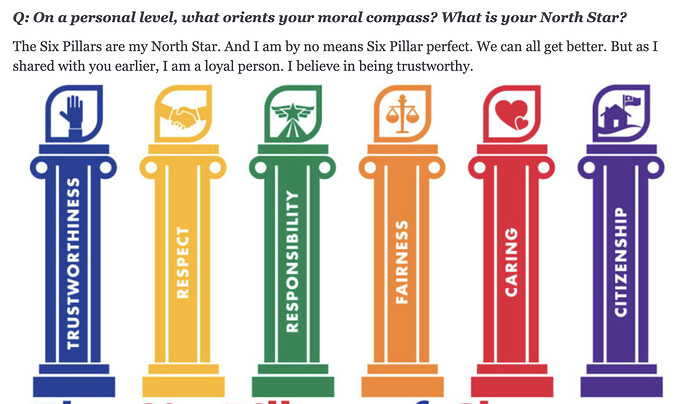Simple Summary
This proposal delineates the implementation of a set of core principles that guide decisions in the DAO.
Abstract
Currently, rules and procedures in the PoH are made without any guiding principles or common framework. Although decentralization of governance creates new opportunities and benefits for centralized governments, it can also create opportunities for bad actors to abuse or exploit the system. This set of principles are made to counteract them. This will generate a normative hierarchy for the Principles, HIPs, and individual actions within the system.
Motivation
The intention is to have a core set of guiding principles developed that support the system’s governance. Each decision would be tested against these guiding principles to ensure we keep on the path of our vision.
Proof of Humanity is at risk of following the rules and decisions the way they were written, rather than in the project’s spirit. We are building technology to serve fundamental human rights. Without a guiding set of core principles, it is challenging to create the context for each decision.
Models of governance like the Bill of Rights, Universal Declaration of Human Rights, and The 10 Principles of Burning Man are guiding approaches that support countries and communities to develop better governance.
Specification
The following is a suggestion for a list of principles:
The Guiding Principles of Proof of Humanity
-
The principle of humanity - humans must always come first.
-
The principle of equality - all humans must be treated equally and have equal opportunity on the system.
-
The principle of fairness - all humans must be treated fairly in all interactions on the system.
-
The principle of transparency - all interactions must be fully transparent.
-
The principle of abundance - money must never be a barrier to access the system, participation in governance, tribunals, or leaving the system.
-
The principle of kindness - all systems and processes must be kind.
-
The principle of do no harm - all systems and processes must not create harm to any human.
-
The principle of 7 generations - all systems must be built with the next 7 generations in mind
-
The principle of having fun along the way - the way we get there is as important as where we are going
-
The principle of sovereignty - each human in the system has its own will and will not be coerced to act against its will.
-
The principle of free speech - each human is free to express their ideas, their dissent, as long as they are not hateful nor inciteful.
-
The principle of free assembly - persons in the system have the freedom to form collectives to defend or share their ideas, as long they do not violate other principles.
-
The principle of the spirit of the law - the spirit of a law must take precedence over the letter of the law
-
The principle of language neutrality - no language in the system should be a disadvantage over the other.
-
The principle of parsimony - all things being equal, the simplest solution to a problem should always prevail.
-
The principle of environmental stewardship - taking into account the responsible use and protection of our planet.
-
The principle of decentralization - all precautions should be taken to ensure systems remain protected against centralisation and control.
-
The principle of the Universal Declaration of Human Rights - Proof of Humanity explicitly endorses this declaration until such time a decentralised version is available.
Hat tip to @ludovico and @Justin for collaboration on this. It would be great to get some feedback on this overall approach.

